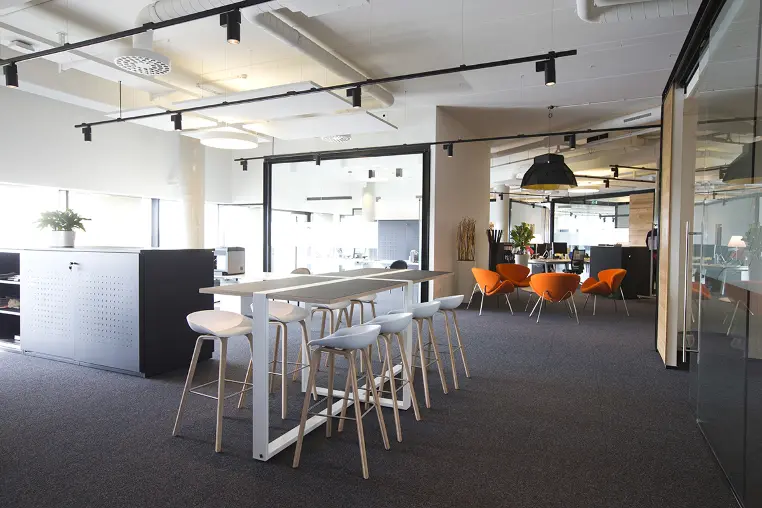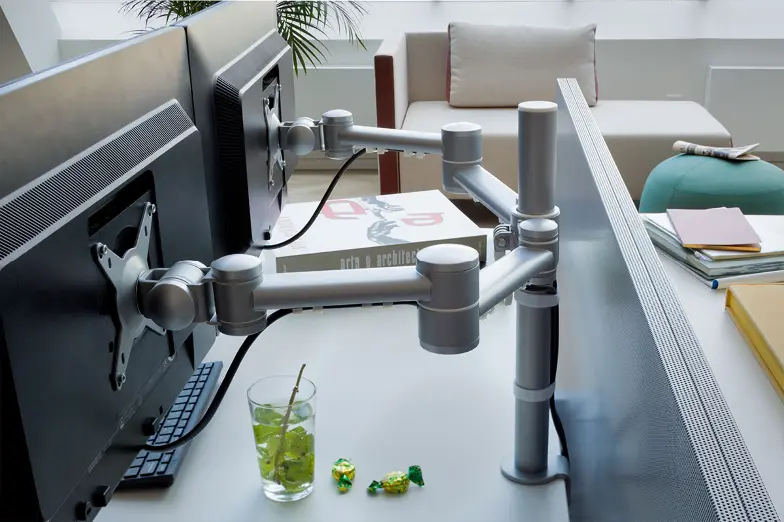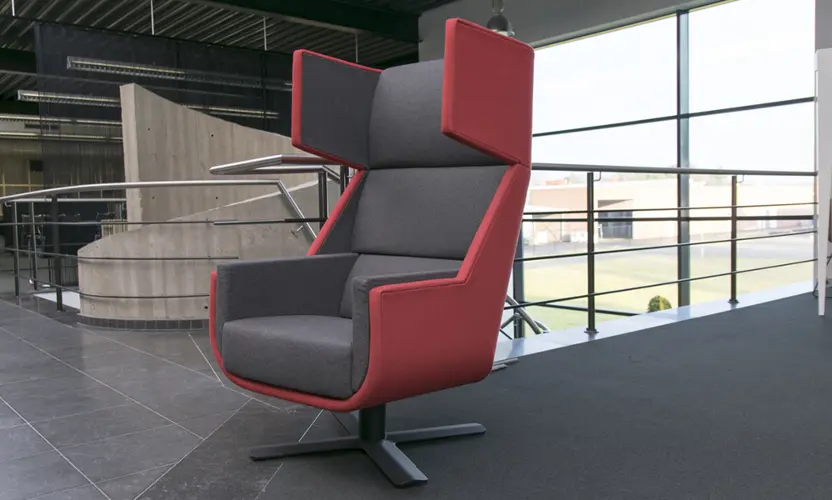Working from home - curse or blessing?
Working from home is hot. That much is clear. Provided it is properly completed, it therefore has advantages for both the employee and the employer. One of the important assets for a company is the considerable savings it can realize on its office furnishings. After all, making a professional home workplace available costs him much less than installing a workplace in the office. Which, moreover, is often only 40 to 60% occupied. But there's more.
Benefits of working from home
1. PRODUCTIVITY
Research shows that as many as 86% of white-collar workers who occasionally or often work from home say they are more productive at home. This large group also indicates that they work as many or more hours at home than during a comparable day at the office. (Securx survey among 922 white-collar workers in March 2015)
2. EFFICIENCY
Of the surveyed white-collar workers who work as many hours at home as they do in the office, only 3% perform less than at the office. 36% do more work. Of the very small minority who work at home for less time than at the office, 39% believe they can do the same amount of work at home in less time. 15% do even more work at home than at the office. Apparently the majority can work more efficiently at home than at the office.
3. FLEXIBILITY
Those who work at home can better organize their day and work in function of their private life and therefore better balance the two. Provided that he has the appropriate workplace and desired discipline. Anyone who alternates work with household tasks such as doing the laundry, being present for the children or letting a repairer in, must of course have the self-discipline not to get completely carried away.
4. MORE TIME FOR YOURSELF
Travel time to work is based on your own time, not your working time. Whoever has to move less, therefore, gains time that he can fill in as he sees fit. Being less in traffic jams also means less stress, both about arriving at work on time and being back home on time. This provides a better sense of personal quality of life.
5. LESS LOSS OF SICKNESS
Research also indicates that people with minor health problems or physical discomfort at home are more likely to work because they feel completely at ease there and do not hinder colleagues. Or even lay down for a while and then continue doing it. 62% of white-collar workers work at home with such health problems, if the employer allows it.
Five challenges of working from home
1. TEAMWORK
Solutions more often arise from human interaction than from individual thinking. Working from home makes spontaneous interaction at the office less obvious. It becomes completely problematic when it becomes impossible to organize team meetings because someone in the team always claims that 'it is his regular home working day'. That can never be the intention of working from home.
2. PERSONAL CONTACT
Regular contact with colleagues is crucial, both for the quality of the work itself and for maintaining social contacts. Good relations with colleagues determine the atmosphere and productivity of the company. Working from home reduces these important contacts and can make employees feel less involved with work in general and with specific projects in particular.
3. EVALUATIONS
Despite the fact that their individual performance is often better, home workers are less likely to be promoted than colleagues who work in the office. The fact that they are literally seen and heard less in the office is undoubtedly part of that. After all, the idea that someone sitting at his computer at his computer is productive is deeply ingrained in employers or managers. So just by not being seen, the employee who works from home often gets a less positive evaluation.
4. SELF DISCIPLINE
Working from home requires greater self-discipline. Because those who work at home may be less distracted by colleagues, but no less by children, family, friends or household tasks. Planning and organizing your days well are therefore an absolute must, and not everyone is equally good at it. A clearly defined workplace and a strict separation between work and private life are therefore an absolute must. Just like - for most people - well-defined working hours.
5. INFRASTRUCTURE
Work requires focus. And for this, a clearly separated, high-quality workplace is indispensable. Sitting at the kitchen table in pajamas may look romantic in a commercial, but it's less efficient and productive in real life anyway. Just like you put on the appropriate outfit for your favorite sport, you should also do that for work. It already unconsciously puts you in the right mindset. Just like the environment does. A specific, ergonomically sound workplace is therefore an absolute must.
Decision
Working from home is a form of freedom and flexibility that will not disappear. After all, if implemented properly, it is a blessing for both employer and employee. Moreover, it is guaranteed to become an increasingly important argument to attract and/or retain the latter. The freedom to organize your own time will be one of the most important aspects of a job for future generations.
Learning to deal with this new work culture and its positive results will automatically increase the mutual trust of employees of all walks of life over time. Just like the necessary self-discipline of every home worker. It is up to the companies to work on this with education and training.
The two remaining crucial topics are teamwork and infrastructure. Companies will have to organize themselves in such a way that (spontaneous) contact with colleagues and the vital teamwork remain possible at all times. And that employees can work at an equally ergonomically sound, professional workplace at home as in the office. Knowing that this is cheaper than installing a workplace in the office, that shouldn't be a problem.



